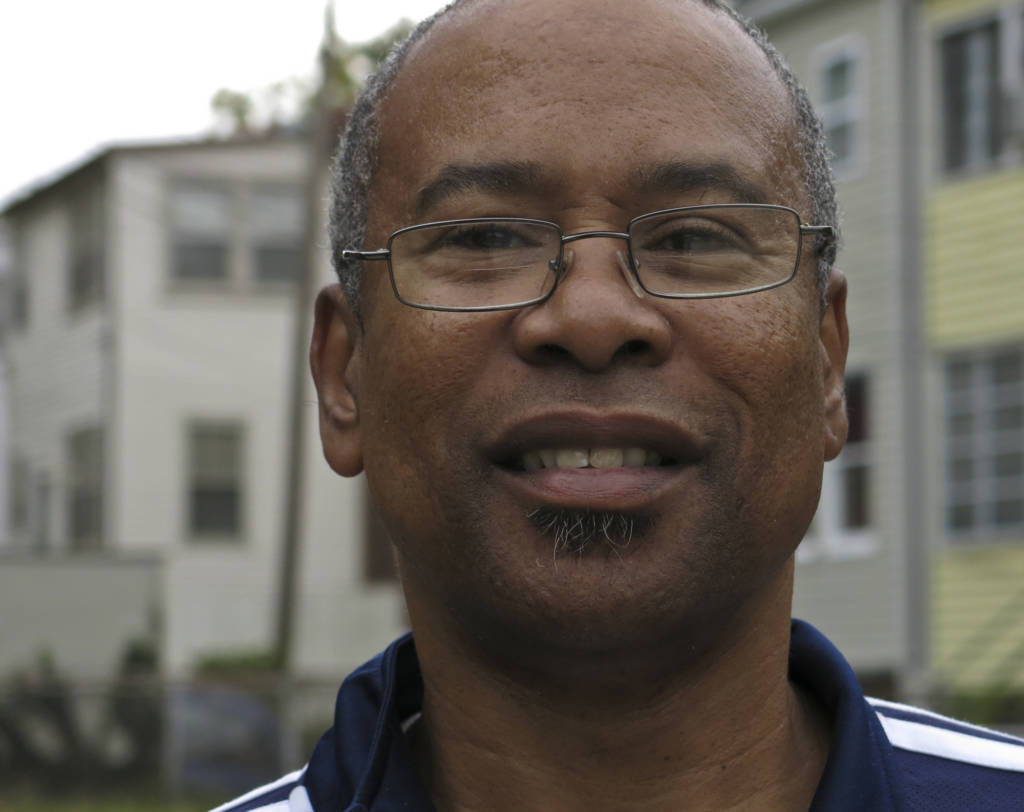First comes the isolation. Then comes the drug dependency. Then a stint in a prison or mental institution. Then, too often, homelessness.
Linda Meixner has seen the awful domino effect that begins with mental illness.
Luckily, Meixner is a development director at Woodley House. It is a program created more than half a century ago to help people with mental illness live normal productive lives in their communities.
“Just because you have a mental illness does not mean you have to lose dignity and respect,” says Meixner.
Woodley House got it’s start back in 1958. It was just one house back then, one of America’s first “halfway houses” founded by the late Joan Doniger, a researcher and occupational therapist who worked to offer “choices” to people who would otherwise languish for their entire lives in mental hospitals.
Those were the very early days of America’s deinstitutionalization movement. In the decades that followed, driven by a recognition of the appalling conditions in many state mental hospitals, combined with a growing understanding of mental illness, improved antipsychotic medications and court decisions that recognized the legal rights of the mentally ill, America deinstitionalized hundreds of thousands of people.
Across the country, advocates such as Doniger worked hard to set up community-based housing programs and clinics to offer support to patients once they left the hospitals.
However, there were never enough places to meet the need. Thanks to factors ranging from inadequate federal and local funding to neighborhood resistance, the community-based safety net for people living with mental illness turned out to be at best, highly imperfect.
Woodley House took root, though, and has managed to flourish. Instead of a cell in a prison or a bed in a mental ward, the program offers “housing plus support,” Meixner explains.
“We encourage people to take charge of their own lives.”
The program operates group homes including Valenti House in the District’s Woodley Park neighborhood and Holly House in the Shepherd Park neighborhood. In these homes, former inmates and formerly homeless men and women coping with mental illness get the support they need in preparation to eventually live on their own.
Woodley House also owns and leases apartments in Northwest that house over 64 individuals “in recovery” who are participants in a Supported Independent Living (SIL) program.
Louis Crump, an ex-offender living with mental illness, has only praise for the help he has found from Woodley House and its SIL program.
He admits when he first left prison he was confused.
“I did not know who I was or how to integrate into society.”
He received shelter for several years with help from his core service provider, Green Door, an organization that assists people in recovery from mental illness by providing treatment and other services. Then Woodley House found Crump a slot in its SIL program.
“If it wasn’t for Woodley House, I’d be on the street looking for a bed,” admits Crump.
In addition to having a safe and stable home, Crump has received life skills training at Woodley House. He has also found camaraderie at weekly meetings where he and other supported living program participants are encouraged to share thoughts about their lives, their goals and challenges.
Like other participants, he continues to receive mental health services from a core service provider, in his case, Green Door.
This array of services has helped keep participants out of mental hospitals, according to Woodley House. Before coming to the program, more than two-thirds of participants reported “multiple psychiatric hospitalizations” a survey conducted by the organization found. After coming to Woodley House nearly 90 percent of those residents reported no psychiatric hospitalizations.
Woodley House is less costly than institutionalization as well. Woodley House’s services to clients cost between $30 to $314 per day, depending on the program and level of care. The per diem rate for Saint Elizabeths, a psychiatric hospital in Southeast, is $783.
Similarly, larger studies conducted around the country have shown that providing permanent supportive housing is cheaper than maintaining chronically homeless and mentally ill people in a cycle of shelters, hospitals and jails. Increasingly, local state and federal policymakers are sharing a recognition that providing permanent supportive housing is not only compassionate public policy, but prudent and cost-effective too.
“Permanent supportive housing for individuals who are struggling with severe mental health issues leads to improved health outcomes and reduced costs,” says Kate Coventry, a policy analyst with the DC Fiscal Policy Institute.
Woodley House, with a program budget of approximately $2.4 million per year, draws roughly two-thirds of its funding from government contracts. Client fees represents over 20 percent. The rest comes from grants and donations. On average, 300 people a year benefit from Woodley House’s services.
But there are far more people in need of services than there are slots in programs to serve them. A supportive housing strategic plan developed by the DC Department of Behavioral Health estimates that 40,000 people in the city have either a “serious mental illness” or “serious and persistent mental illness.”
“There is still a great need for more permanent affordable housing,” acknowledges Steve Baron, director of the city’s Department of Behavioral Health.
Currently, approximately 2,500 people with mental illness are living in supported housing in the District, Baron notes in an e-mail.
“[W]e continue to increase the number — Mayor (Vincent) Gray funded about 150 new housing subsidies in the in the FY ‘15 budget and more than 175 housing units are slated for construction or renovation in the next few years,” Baron says.
Crump knows he is one of the lucky ones to have a place in a program designed to meet his needs.
“I’m thankful I have a place with Woodley House,” he says.
He feels optimistic about his future. As his visit with a reporter ends, he shows off an array of sports team bracelets that he makes. He learned the craft as therapy but the work now helps to provide income, he says.
“I feel blessed,” said Crump.








